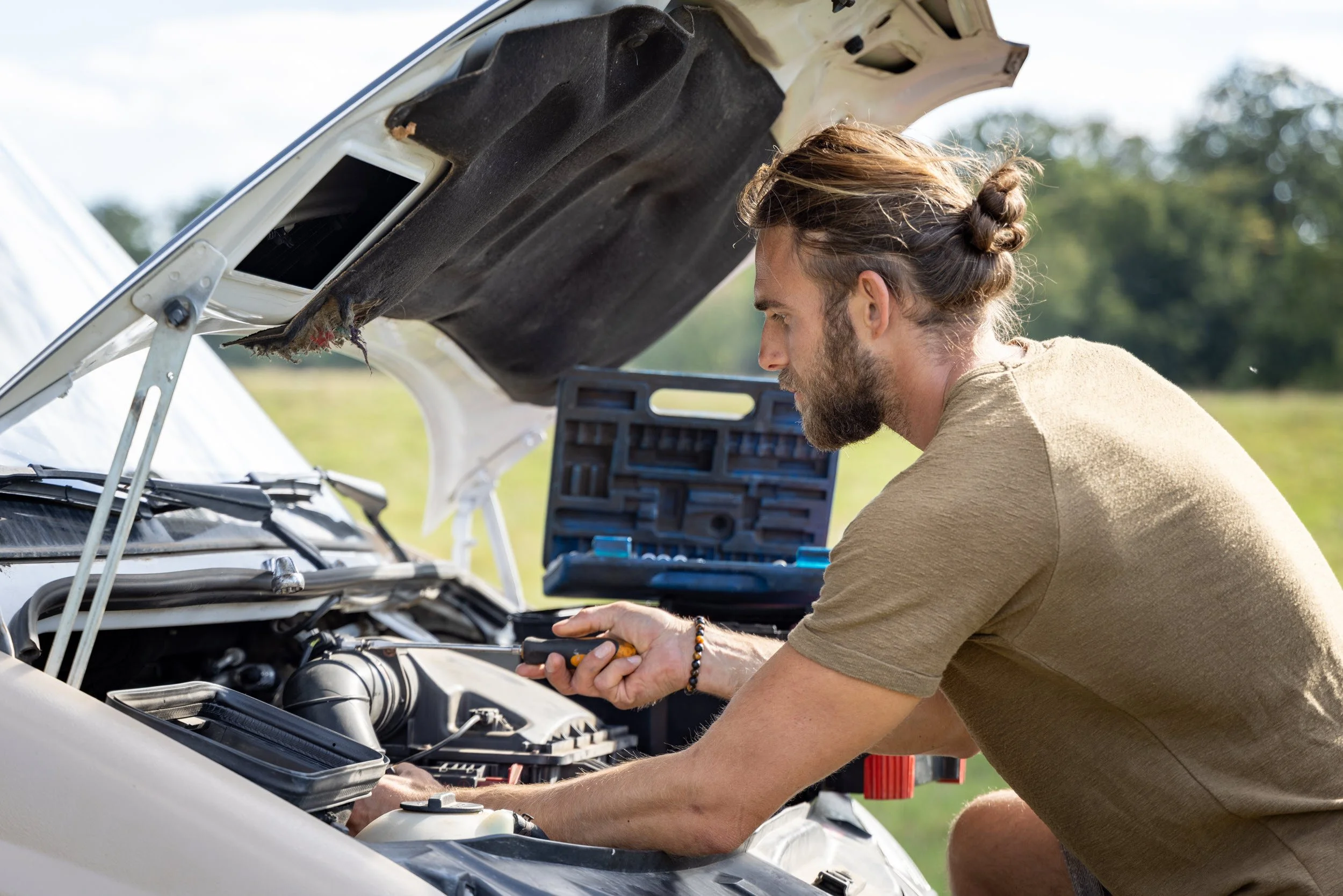DIY Fixes vs. Professional Auto Repairs: When to Call a Mechanic
When something on your car acts up, it’s natural to wonder: “Can I fix this myself, or should I take it to a mechanic?” Some jobs are simple and safe to do at home. Others need professional tools, training, and a warranty you can rely on. This guide walks you through both sides so you can decide with confidence—especially if you’re driving daily in Killeen, TX.
What Counts as a DIY Auto Repair
DIY repairs are low-risk tasks you can handle with basic tools and a little patience. The goal isn’t to replace a technician—it’s to stay ahead of small issues and save money where it makes sense.
Common Repairs You Can Safely Do at Home
Replace wiper blades. A fast, inexpensive visibility boost.
Swap the engine air filter. Usually tool-free and improves airflow.
Change cabin air filter. Better HVAC performance, fewer odors.
Replace simple bulbs. Headlight/taillight bulbs are straightforward on most vehicles.
Top off fluids (washer, coolant, power steering where applicable). Keep levels in spec between visits.
Tools and Skills Needed for Basic Repairs
A starter kit: screwdrivers, pliers, torque wrench, jack + jack stands, wheel chocks, gloves, flashlight, rags, and your vehicle’s repair manual or OEM app. Work on a level surface and follow manufacturer instructions.
When Professional Auto Repairs Are the Safer Choice
Some components are safety-critical, computer-controlled, or require precise measurements. That’s where a certified mechanic, professional equipment, and a shop warranty make the difference.
Complex Repairs That Require a Mechanic
Brake system work. Pads, rotors, hydraulic issues, ABS diagnostics. (See our brake service by certified mechanics.)
Transmission repairs. Internal components and fluid procedures are specialized.
Electrical diagnostics. Module programming, wiring faults, parasitic draws.
Steering & suspension. Tie rods, control arms, struts, and post-repair alignment.
If your issue involves braking, steering, or diagnostics lights across multiple systems, book professional auto repair in Killeen.
The Risks of Attempting Advanced Repairs Yourself
Incorrect torque specs, missed calibration steps, or contaminated fluids can turn a small problem into a big bill. Some mistakes also affect safety or void warranties.
Factors to Consider Before Choosing DIY or Mechanic
Use this quick filter before you pick up a wrench.
Cost Comparison: DIY vs. Professional Repairs
DIY saves labor costs, but remember tool purchases, your time, and redo risk. One botched attempt can erase any savings.
Safety, Warranty, and Liability Considerations
If the repair touches safety systems (brakes, steering, airbags) or could affect warranty coverage, the smart move is a shop visit.
Time, Tools, and Technical Knowledge
If you’re missing any one of these, weigh the convenience and certainty of a professional repair.
Why Killeen Drivers Often Choose Professional Repairs
Life here moves quickly—between commuting, school runs, and Fort Cavazos schedules, reliable transportation isn’t optional.
The Demands of Military and Commuter Life on Your Car
Stop-and-go traffic, highway heat cycles, and tight schedules mean downtime costs more. Prevent surprises with timely inspections.
Local Conditions That Increase Wear and Tear
High temps, dust, heavy rains, and construction zones can accelerate wear on brakes, suspension, and cooling systems. For climate-specific stressors and upkeep, see our guide to local wear-and-tear factors (coming soon).
Quick Decision Guide
| Symptom / Task | DIY at Home | Better at a Shop |
| Wiper blades, cabin/engine air filter |  |
|
| Simple bulb replacement |  |
|
| Oil top-off (not a change) |  |
|
| Brake pads/rotors (no prior experience) |  |
 |
| Check-engine light with multiple codes |  | |
| Transmission slipping/shifting issues |  | |
| Steering pull, vibration, uneven tire wear |  (alignment) (alignment) | |
| Electrical shorts or battery drain |  |
FAQs About DIY vs. Professional Auto Repairs
Can I change my own brake pads?
If you’re experienced and follow proper procedures, yes—however brakes are safety-critical. Most drivers prefer a professional for peace of mind.
Will DIY repairs void my warranty?
Not by default. Use OEM-approved parts, follow procedures, and document your work. Improper repairs can cause warranty issues.
What are the must-have tools for beginners?
Jack + stands, torque wrench, lug wrench, screwdrivers, pliers, gloves, wheel chocks, and your vehicle’s repair manual.
How do I know when a job is “too big”?
If it involves safety systems, special calibration, module programming, or you’re guessing—book a professional inspection.
Need a Mechanic You Can Trust in Killeen?
From brake service and steering & alignment to advanced diagnostics, our team keeps your vehicle safe and reliable. Book an auto repair appointment and get back on the road with confidence.

